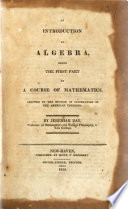 | Jeremiah Day - Algebra - 1814 - 304 pages
...sums will be Here we discover the important property, that, 428. In an arithmetical progression, the sum of the extremes is equal to the sum of any other two terms equally distant from the extremes. In the series of numbers above, the sum of the first and the last term, of the first but one and the... | |
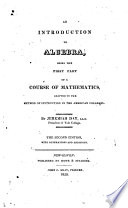 | Jeremiah Day - Algebra - 1820 - 352 pages
...will be Here we discover the important property, that, 428. In an arithmetical progression, THE SUM or THE EXTREMES IS EQUAL TO THE SUM OF ANY OTHER TWO TERMS EQUALLY DISTANT FROM THE EXTREMES. In the series of numbers above, the sum of the first and the last term, of the first but one and the... | |
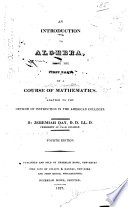 | Jeremiah Day - Algebra - 1827 - 352 pages
...a+4<Z,2a+4d,2a+4d,2a44rf Here we discover the important property, that, 428. In an arithmetical progression, THE SUM or THE EXTREMES IS EQUAL TO THE SUM OF ANY OTHER TWO TERMS EQUALLY DISTANT FROM THE EXTREMES. In the series of numbers above, the sum of the first and the last term, of the first but one and the... | |
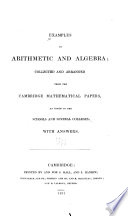 | Algebra - 1834 - 182 pages
...quantities form an ascending geometric series, the sum of the first and last terms is always greater than the sum of any other two terms equally distant from the extremes. 68. Prove that if any quantities, whose differences are inconsiderable with respect to the quantities... | |
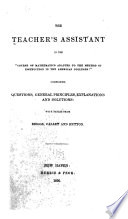 | Mathematics - 1836 - 488 pages
...series, the first term is the greatest, and the last term the least. In arithmetical progression, the sum of the extremes, is equal to the sum of any other two terms equally distant from the extremes. The sum of the terms is equal to half the sum of the extremes multiplied into the number of terms.... | |
 | James Bates Thomson - Algebra - 1844 - 272 pages
...obvious from the illustration in Art. 331, that the sum of the extremes in an arithmetical progression, is equal to the sum of any other two terms equally distant from the extremes. Thus, in the series 3, 5, 7, 9, II, the sum of the first and last terms, of the first but one and last... | |
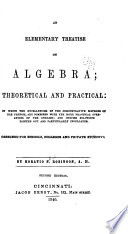 | Horatio Nelson Robinson - Algebra - 1846 - 276 pages
...property, that, in an arithofttietical progression, the sum of the extremes is equal to the ibtsum of any other two terms equally distant from the extremes....Also, that twice the sum of any series is equal to tfthe extremes, or first and last term repeated as many times 0 as the series contains terms. ,n Hence,... | |
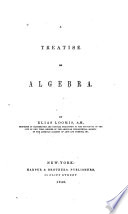 | Elias Loomis - Algebra - 1846 - 376 pages
...П(I + a) Hence S=— —= — -. Therefore, PROGRESSIONS. It also appears from the above, that the sum of the extremes is equal to the sum of any other two terms equally distant from the extremes. (238.) The two equations „ at ~2~ ' contain five variable quantities, a, /, d, n, S, of which any... | |
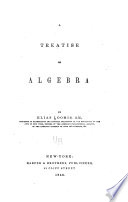 | Elias Loomis - Algebra - 1846 - 380 pages
...sum of the two extremes, multiplied by the number of terms; It also appears from the above, that the sum of the extremes is equal to the sum of any other two terms equally distant from the extremes. (238.) The two equations contain five variable quantities, a, I, d, n, S, of which any three being... | |
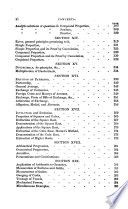 | James Bates Thomson - Arithmetic - 1847 - 426 pages
...Thus, if 9—0=6—3, then will 9 + 3 = 6 + 0. 599. In any arithmetical progression, the sum of the two extremes is equal to the sum of any other two terms equally distant from the extremes, or equal to double the middle term, when the number of terms is odd. Thus, in the series 1, 3, 5,.... | |
| |